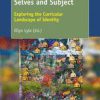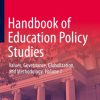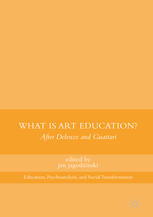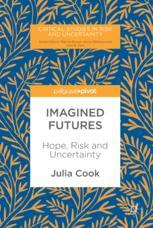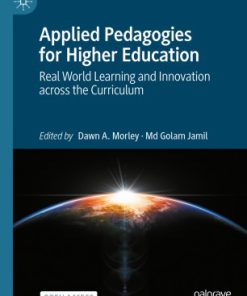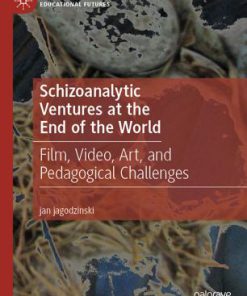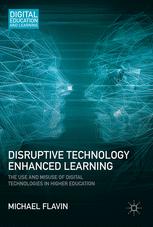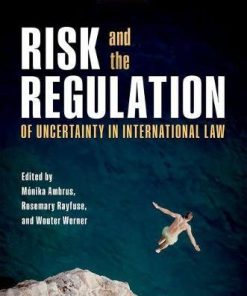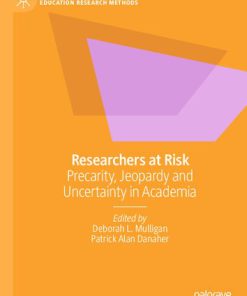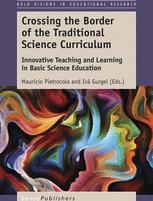The Precarious Future of Education Risk and Uncertainty in Ecology Curriculum Learning and Technology 1st Edition by Jan Jagodzinski 1137486912 9781137486912
$50.00 Original price was: $50.00.$25.00Current price is: $25.00.
The Precarious Future of Education: Risk and Uncertainty in Ecology, Curriculum, Learning, and Technology 1st Edition by Jan Jagodzinski – Ebook PDF Instant Download/DeliveryISBN: 1137486912, 9781137486912
Full download The Precarious Future of Education: Risk and Uncertainty in Ecology, Curriculum, Learning, and Technology 1st Edition after payment.
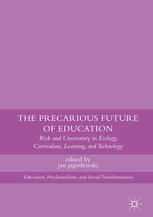
Product details:
ISBN-10 : 1137486912
ISBN-13 : 9781137486912
Author: Jan Jagodzinski
This volume examines the challenges weighing on the future of education in the face of globalization in the twenty-first century. Bringing together eleven authors who explore the paradox of an “after” to the future of education, each chapter in this book targets three important areas: ecology as understood in the broader framework of globalization and pedagogy; curriculum concerns which impact learning; and the pervasiveness of technology in education today.
The Precarious Future of Education: Risk and Uncertainty in Ecology, Curriculum, Learning, and Technology 1st Table of contents:
Chapter 1: The Precarious Future of Education: The Speculative Fictions of Education
Up in the Clouds: Take 1
Up in the Clouds: Take 2
Up in the Dark, Dark Clouds: Take 3, the Futility of Resistance?
Notes
References
Part I: Curricular Difficulties: Ecology, Globalization and Pedagogy
Chapter 2: After the Future in Teacher Education
Prologue
Part 1: On the Original Difficulty of Curriculum and Pedagogy in Teacher Education
Curriculum in a New Key and Teacher Education
Radical Hermeneutics and the Original Difficulty of Life
The Difficulty of Being in an Over Familiar Profession
Forging New Paths for Curriculum and Pedagogy
Learning from the Original Difficulty of Learning to Teach
Part 2: On the Original Difficulty of Curriculum and Pedagogy: Being “Out of Order”
Introduction—Being in the World as a Teacher
The Challenges of Natality and the Limits of Programs
Two Poles of Tension
Thinking and Action
References
Chapter 3: Curriculum Lessons from Ecopsychology
References
Chapter 4: The Influence of Cultural and Familial Complexes in the Classroom: A Post-Jungian
Introducing the Classroom
An Always Already Animated World
The Social and Political Turn in Jungian Psychology
Group Life and Complexes
The Cultural Unconscious and Cultural Complexes
The Critical Intersection Between Groups and Individuals
The Familial Unconscious and Family Complexes
Acknowledging the Ancestors
Borrowing from African Traditions of Healing
Transgenerational Ties That Bind
Parallels with Findings in Epigenetics
In Conclusion
Notes
References
Chapter 5: Silent Schools? On the Re-emergence of Oral Language and Culture in Education
Schools as Quiet Places
A Short History of Oral and Written Culture
The Power of Literacy on Schools
The Impact of Oral Culture in Education
An Invitation to Recreate Oral Cultures
Notes
References
Part II: Learning Explored
Chapter 6: What Is and What Will Be Science Learning (Theory) in Science Education Reform and Pr
Introduction
The PISA Video Story
Reflection
The ‘No Zero’ Policy Story
Reflection
The STEM Story
Reflection
The Journal Review (Short) Story
Reflection
Final Reflections: Extracting the ‘Idea’ from the Stories in Relation to My Title
References
Chapter 7: Big Data and Learning Analytics: The “New” Teaching Machine
This Is Not a Test
The Immanent Flaw of Teaching Machines
Notes
References
Chapter 8: The Case of Wondering ‘Its’: The Future as More of the Same in the Name of Ch
Just Do It!
Learnification
What if Curriculum (of a Certain Kind) Doesn’t Matter?
Agency Fracture from System Confusion, Political Tourism and Policy Amnesia
The Future’s Empty Present
Students Imagine Probable and Preferable Futures
A Future Dimension
The Role of Futures in Scholarship
Teaching Futures
Coda
References
Part III: Technological Dilemmas
Chapter 9: Brave New Network: The Gambit of Living Automated Lives
The Gambit of Living Automated Lives
Brave New Network
Network Literacy
Industrial Automation: The Production of Things
Production of the Anti-sign
Network Automation: Production of Users
Network Autonomy
Artificial Literacies
Private Life of the Postperson
Automatron: Network as M-Other + Mirror Stage of Humanity
Conclusion: Becoming the Automated Other
Notes
References
Chapter 10: Technology’s Hidden Curriculum and the New Digital Pharmakon
On Nearness and the Everywhereness of the Digital
Prealgorithmic Things and the Patience of Place
Technology as Pharmakon
Red Pill, Blue Pill
A Brief Phenomenology of the Digital Pharmakon
Conclusion: “Resistance Is Futile”
Note
References
Chapter 11: Pioneering the Use of Video in Research and Pedagogy: A Currere of Media(tion)
A Rationale
A Mediated Journey
Ancient History: From Consumer to Producer
The Early Years Through a Future Lens: Moving to Producer and Academic Videographer
The Formative Years of Building an Emergent Future
The Future Arrived in 2011: Emergent Epistemological, Aesthetical and Technological Considerations
1 Live—One Camera—Conflict in the Library
2 Live—Two Cameras—I’m Fine
3 For Camera—Staged Like Theater—I Am Fine
4a Studio Audience: A Compromising Hybrid
4b Studio Audience: A Compromising Hybrid
5 Two Cameras—Following an Improv
6 In Vivo—Finding the Shot
7 In Vivo—Rehearsal as Inquiry
8 An Improvised Poetic Reading
9 Camera for Rehearsal
10 Life-Like—Continuous with Narration
11a and 11b Performing at Conferences
12a Clutter and Camera as Data
12b Camera as Mediator
13. Interview Contextures
The Present Conclusion
References
Chapter 12: The Future Is Cancelled: From Melancholia to Belief in the World
Teaching at the End-of-the-World
Proposition 1: The Future Is Cancelled (for Now)
Proposition 2: Resistance Will Come from Inside (from Critique to Belief)
Proposition 3: We Need a Different Logic (Eco-Logics and Micropolitical Resistance)
People also search for The Precarious Future of Education: Risk and Uncertainty in Ecology, Curriculum, Learning, and Technology 1st:
the precariat pdf
the future of education predictions report
the precarious world thought
the precarious world disco
the precariousness
Tags: The Precarious, Future, Education, Risk, Uncertainty, Ecology, Curriculum, Learning, Technology, Jan Jagodzinski
You may also like…
Politics & Philosophy
Education Studies & Teaching
Education Studies & Teaching
Education Studies & Teaching
Politics & Philosophy
Risk and the Regulation of Uncertainty in International Law 1st Edition Monika Ambrus
Cookbooks
Education Studies & Teaching
Computers - Programming


